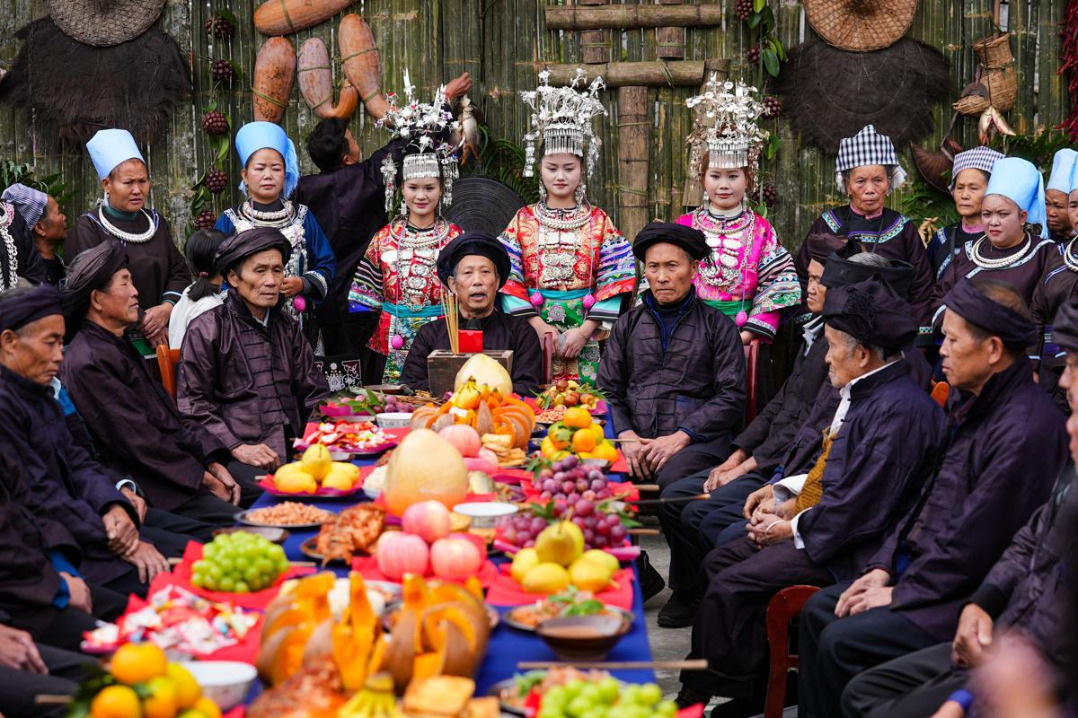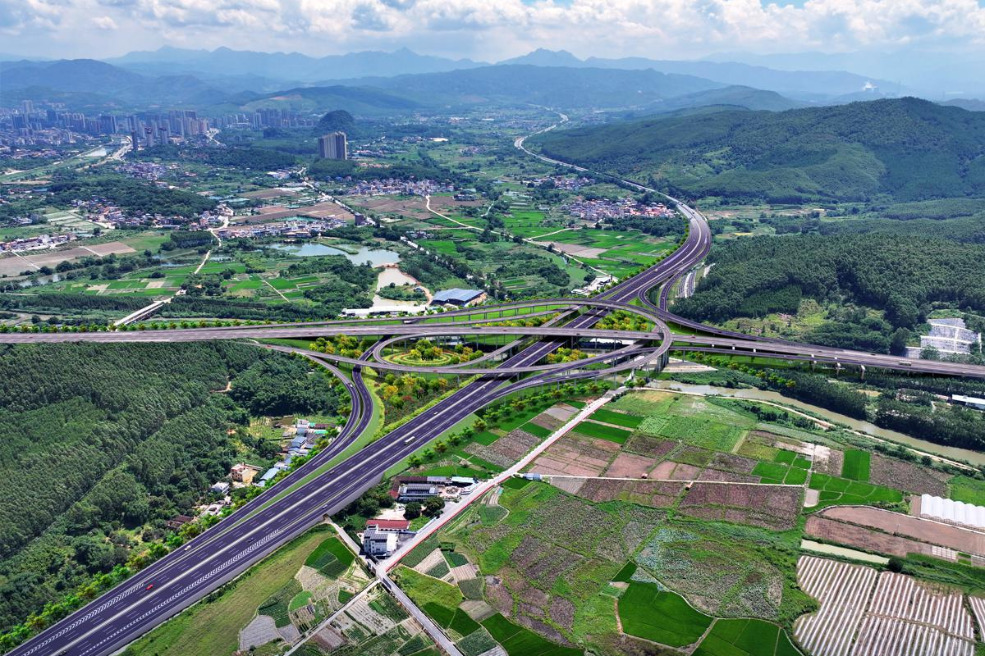Villagers making most of farmland


This autumn is the sixth pear harvest for Huang Qingchang in Xiaogang village, Anhui province.
In the village, the birthplace of China's rural reforms in 1978, Huang said he is always bullish on the promising agricultural sector, and it has kept changing in past decades to adapt to new realities.
Embracing the local pioneering spirit, Huang left his hometown in Jiangsu province for Xiaogang in 2008 and then rent farmland in 2010.
In recent years, his rent has increased and now his 40.5 hectares of land costs about 455,000 yuan ($65,770) per year.
Huang expects a yield of 270 metric tons of pears this year. "The output value will amount to more than 1.6 million yuan, with a net profit of 650,000 yuan," he said.
Nowadays, more than 60 percent of the village's 10,000 hectares of arable land have been transferred by local villagers to businesses like Huang's, according to Li Jinzhu, the first Party secretary of Xiaogang.
Some still work their own land, and Huang's land is not squarely shaped. There are even some local villagers' rice plots in the middle of his farmland.
"That demonstrates that farmers now have more choices than ever for their own farmland, except that they cannot sell it," said Huang.
Despite business options in other parts of the country, Huang chose Xiaogang. "It was the local pioneering spirit that inspired me," he said.
Xiaogang occupies a special place in China's agricultural history. In November 1978, when a collectivized farming policy had been in place for 20 years, 18 locals secretly signed an agreement to subdivide their common farmland into family plots to boost efficiency and increase yields.
"That carried risks with no similar precedents," said Yan Jinchang, 75, one of the 18, who opened a restaurant in the village in 2008 and now earns 140,000 yuan annually.
Back then, Yan barely had enough of a harvest to feed his family of eight.
"Thousands of local farmers fled to cities, including Beijing, to beg for food," Yan said. "We were farmers, we had land, but why were we starving? We were disillusioned."
Many women also performed the Fengyang flower-drum dance, a local folk dance, which soon became known nationwide, he said.
Starting in spring 1979, the 18 farmers began cultivating their own land-subdivided by drawing straws-with great enthusiasm, though still in secrecy.
When harvest came, the households had reaped five times more crops than the previous year, and the secret was discovered by local authorities.
Debate over land privatization began taking place at all levels of government, while the Xiaogang experiment received support from leaders including Deng Xiaoping, and was hailed by the central government as a pioneer of reform, with the practice soon applied nationwide.
Under the reform, farmland ownership was still State-owned, but farmers were able to contract the farmland on a household basis, known as the household contract system.
The contracts carried no strict time limits, which helped keep the rural areas and agricultural sector stable over the long run.
"Separation of farmland ownership and new contracting rights initiated 40 years of prosperity of the agricultural sector," said Zheng Fengtian, vice-dean at the School of Agricultural Economics and Rural Development at Beijing-based Renmin University of China.
Over the decades, the practice has changed with the times.
At the beginning of this century, some of the villagers simply abandoned their land or gave it to others practically for free, as working in cities could bring them much higher salaries, said Yan.
In 2008, Xiaogang farmers were allowed to transfer their land to people like Huang as part of a pilot program, as more villagers left for jobs in cities or took positions at local enterprises.
"Nowadays, the farms mainly rely on women, children and the elderly, and that somewhat hinders production," said Zheng.
"This practice is another major breakthrough in the country's rural reform and will profoundly influence agricultural development in the future."
In 2017, the nearly 4,200 villagers in Xiaogang saw an average annual per capita disposable income of more than 18,000 yuan, in contrast to merely 90 yuan 40 years ago.
In recent years, dozens of enterprises have been attracted to Xiaogang, including Fujian-based Panpan Foods Investment Co, which will provide more than 2,000 positions to villagers in Xiaogang and beyond.
- Linqing: Where Grand Canal meets culinary crossroads
- Xi puts forward five-point proposal for building Asia-Pacific community
- Xi urges Asia-Pacific to jointly bolster universally beneficial, inclusive development
- Xi proposes Asia-Pacific jointly promote digitalization, greening of trade
- Xi says China not to close door to the outside world, will only open still wider
- Xi calls on APEC to jointly keep industrial, supply chains stable, smooth




































